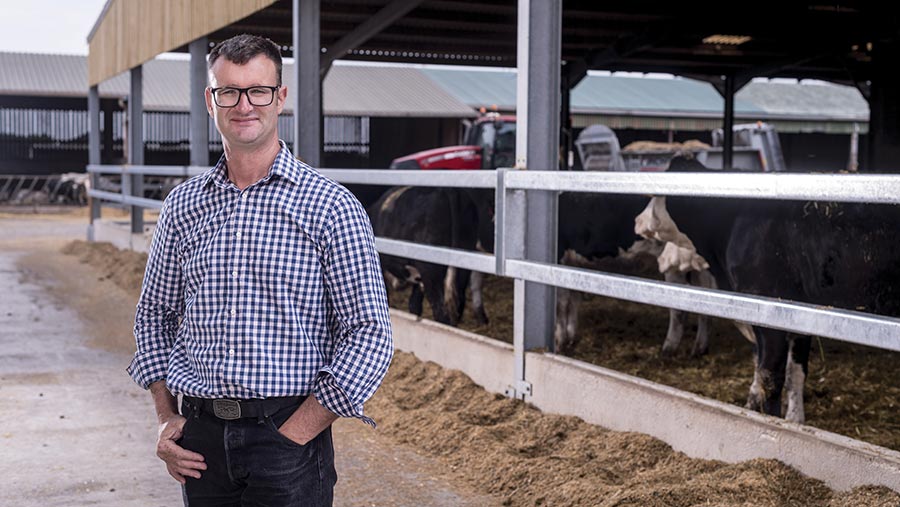Farmer Focus: Does Red Tractor shambles reveal personal agendas?
 © Jim Varney
© Jim Varney Who dropped the ball? Good old Red Tractor (RT) sells us short to the British Retail Consortium (BRC).
As farmers, we have a voice on the board via representation from the NFU and AHDB, who must ultimately take responsibility for the unanimous vote on the “voluntary” Greener Farms Commitment.
To have our union and our levy body put up absolutely no opposition to this commitment astounds me. There appears to be a lack of will to put up a fight at all.
See also: Exclusive: Batters apologises to NFU members over Red Tractor debacle
I bet the BRC couldn’t believe its luck. Did anybody do their homework? Did anybody care? If we’re going to act like a load of wimps, then we’re going to get ridden over roughshod.
My general take on the matter is that after being told at council level by members that we didn’t want any more green schemes, the top table voted with their own personal agenda.
I told former AHDB chief executive Tim Rycroft, when he was wandering around in my yard while visiting one day, that the industry needed no more “green regulation”, and that Red Tractor had been hijacked by the BRC.
We’ve had apologies, but it’s too late: the genie is out of the bottle.
And, as per usual, we are on the back foot, with farmers funding the retailers’ public “greenwash campaign” and valuable assets traded away for nothing. With or without our representatives on the RT board, we need to make our voice heard.
Like most of the country, we’ve had an extraordinary amount of rainfall. We seem to be in a five-year weather cycle.
My pet theory is that it’s directly related to La Niña slowing down sea currents, resulting in a warming on the surface of the Atlantic.
Either way, agriculture is bearing the brunt of climate change and I believe the effects of this unprecedented wet spell could be mitigated to a degree.
As a farmer, I maintain my drainage systems, and the internal drainage boards do a fantastic job maintaining their infrastructure.
But while we have all seen the Environment Agency (EA) spend millions on flood prevention, half a mile downstream the channel is blocked by willow trees and detritus.
If the Dutch engineer Cornelius Vermuyden could dig and maintain a watercourse in 1635, why can’t the EA, nearly 400 years later?
